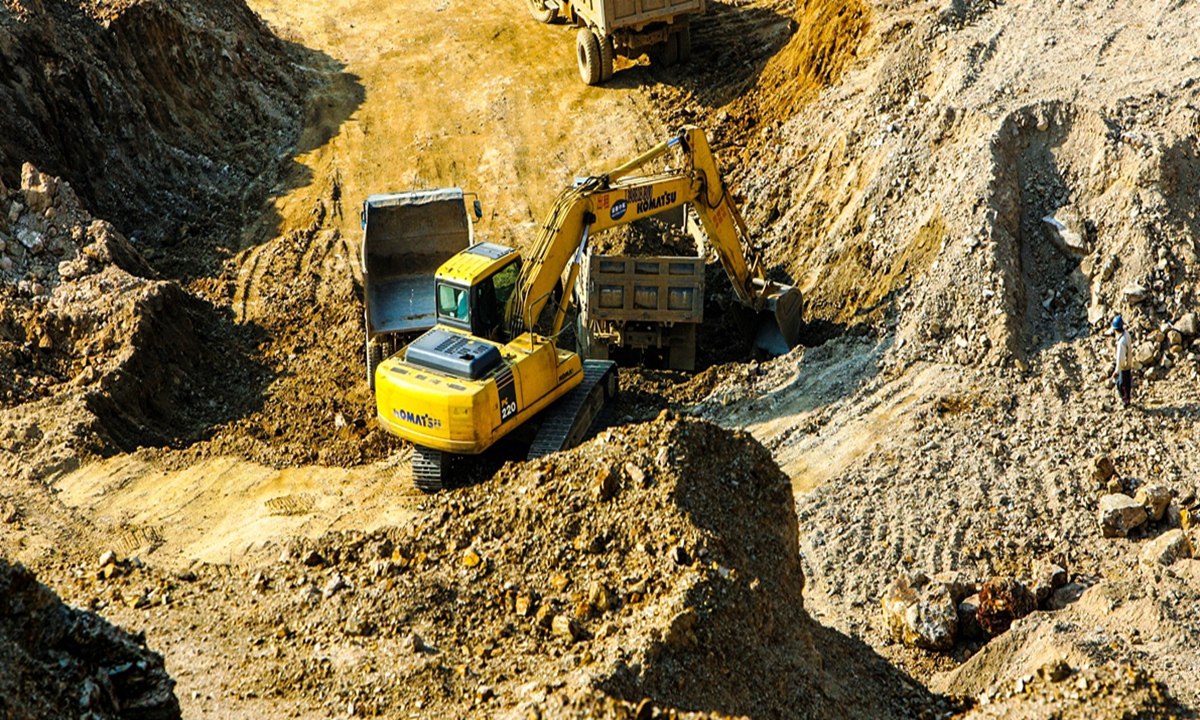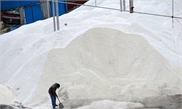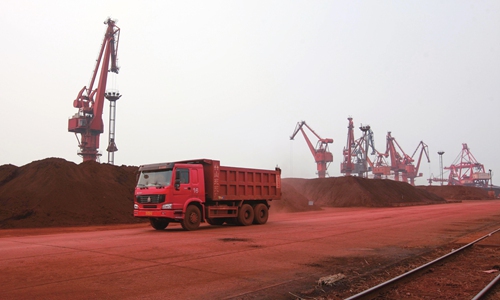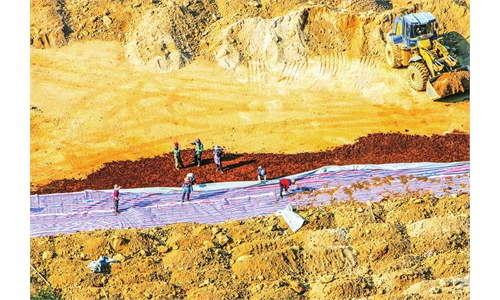
Rare earth Photo: VCG
Xiamen Tungsten Corporation (XTC), China's largest producer of Tungsten products, announced that it has signed an agreement to form a joint venture (JV) with rare and precious metal manufacturer Chifengjilong Gold Mining Co (Chifeng Gold), and the JV will focus on rare-earth resource exploration in Laos.
Industry observers said the move represents Chinese companies' fresh diversification effort in sourcing rare-earth minerals - the bulk of which isreliant onimports from countries such as Myanmar - amid supply chain disruption, skyrocketing bulk commodity price and other rising global uncertainties. Participating in the resource exploration of foreign countries will drive up their local rare-earth industrial chains, while ensuring the security of the strategic resources supply and giving a boost to China's competitive industrial advantage in global sphere, analysts said.
The new JV has a registered capital of 60 million yuan ($8.45 million), with XTC accounting for 49 percent of the investment and Chifeng Gold accounting for the remaining 51 percent, according to an announcement XTC sent to the Shanghai Stock Exchange on Thursday.
Under the agreement, XTC will be responsible for providing support to rare-earth exploration in Laos and assist the JV's access to domestic policy support, and Chifeng Gold should provide assistance inacquiring an exploration license in Laos and applying for local preferential policies. Rare earth is an indispensable element in the production of high-end technology such as smartphones, computers, military equipment, satellite and aerospace technology.
The set-up of the JV will make full use of the two companies' advantages, and is conducive to optimizing XTC's rare-earth industry plan, strengthening the source of supply of rare earth and improving its core competitiveness, XTC said. The other company Chifeng Gold has acquired several mineral resources in Africa and Laos, according to media reports.
Wu Chenhui, an independent industry analyst, told the Global Times on Friday that Chinese companies' investment into rare-earth resource-rich Laos mirrors a new trend in sourcing minerals and an ongoing diversification push.
"Rather than buying from local companies, Chinese companies with tech know-how and independent operating system now look to directly participate in local exploration, so as to minimize any potential disruptions in purchase, price fluctuation and transportation," Wu said.
Currently, China imports large volumes of rare-earth minerals, and most are from Myanmar. Tapping into Laos' market will also enrich the import sources, making China less vulnerable to risks brought by heavy reliance on a single market, according to Wu.
The Global Times reported earlier that several times of border closure in Southwest China's Yunnan Province, as part of anti-epidemic measures, have strained Myanmar's rare-earth mineral trade with Chinese companies in Ganzhou, East China's Jiangxi Province, one of China's most important rare earth manufacturing bases.
Laos is rich in heavy rare-earth reserves. It is expected Chinese firms' investment and technology transfer will help build a rare-earth upstream industrial chain in Southeast Asian (SEA)countries.
Observers said that considering China's overwhelming edge in middle- and end- supply chain, Chinese companies will still ship back mineral resources to China for further extraction and processing. Also, the opening of the China-Laos Railway could facilitate a rare-earth supply chain in SEA.
On Wednesday, US President Joe Biden decided against restricting imports of neodymium magnets that come primarily from China, Politico reported, providing a further piece of evidence showing China's unshaken position in the rare-earth global supply chain. Neodymium magnets are one of the middle-to-end products made with rare earth.
In August, China's rare-earth export volume came to 3,673.6 tons, down by 6.7 percent year-on-year, customs data showed. Export price hit a record high in August, jumping to $26 per kilogram, up 93.8 percent year-on-year
Global Times




